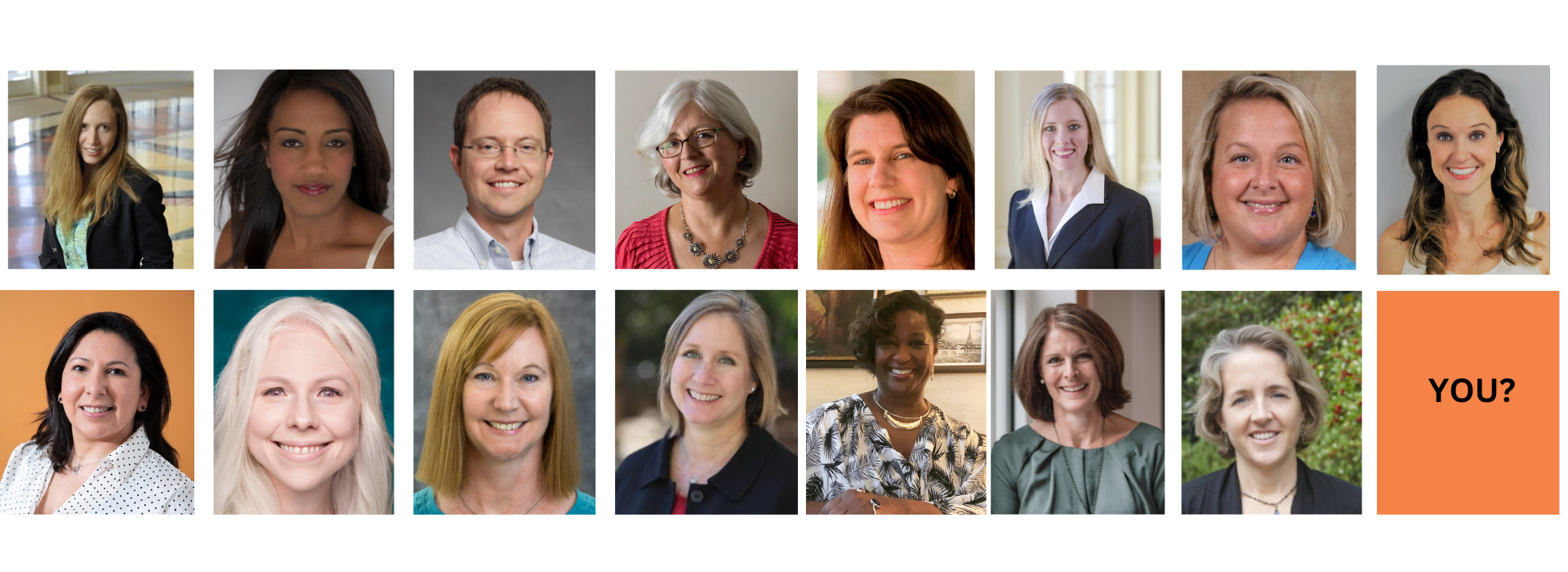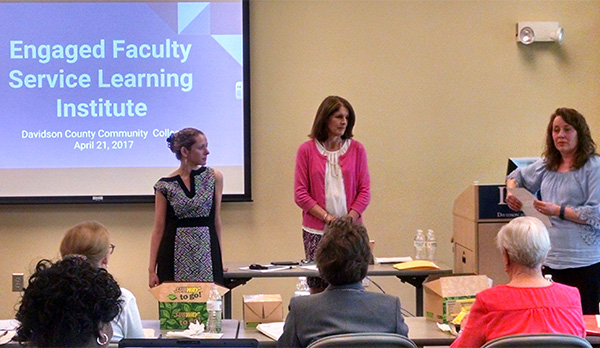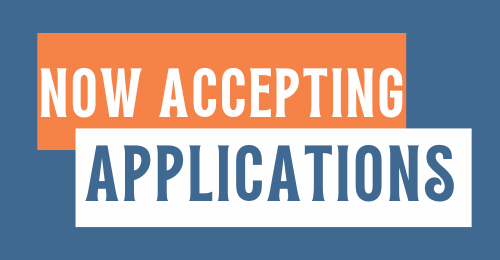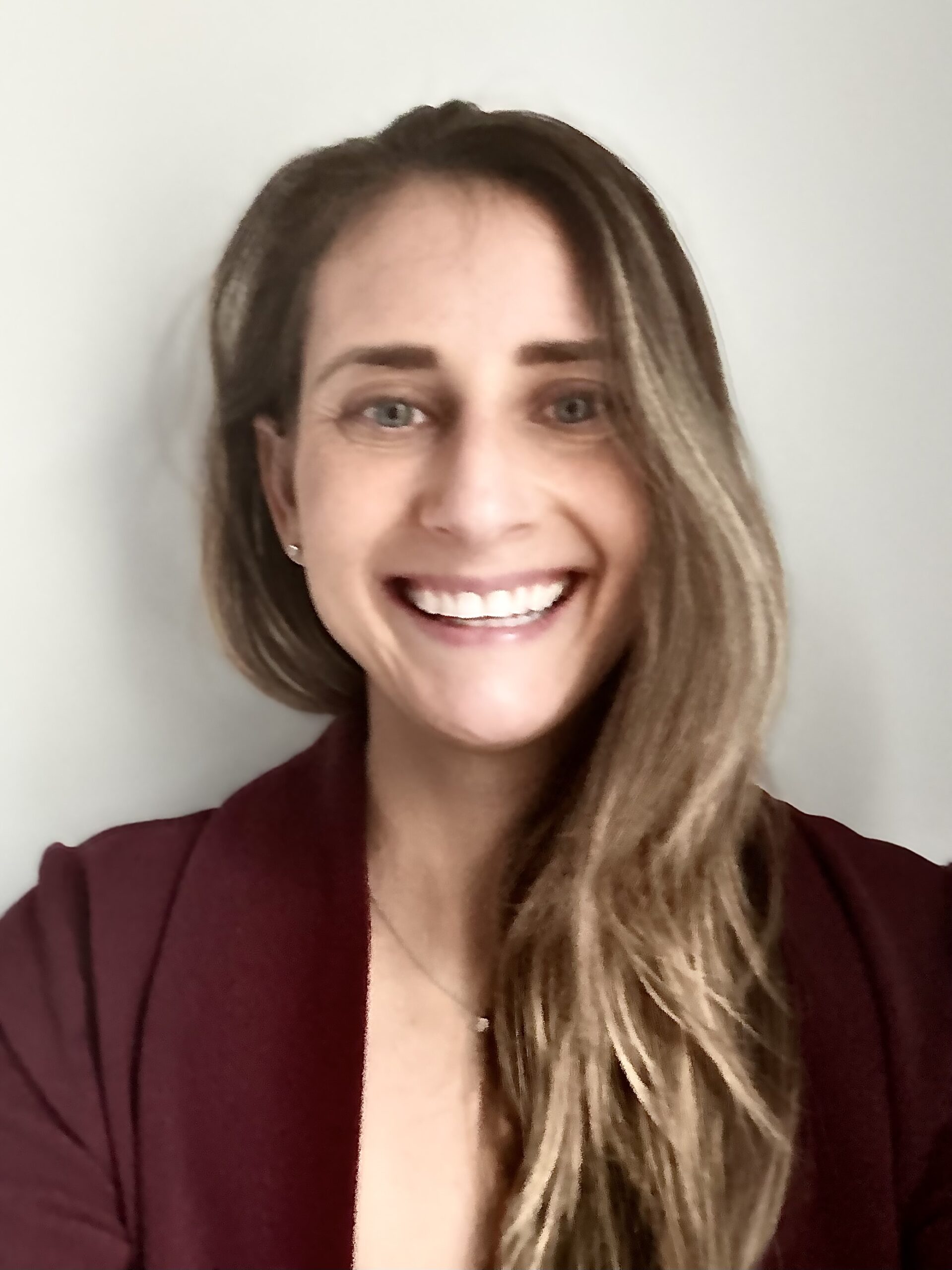
Engaged Faculty Scholars
Launched in 2015, the Engaged Faculty Scholars program supports the development and implementation of self-designed, faculty-led projects that advance and deepen community engagement and/or the scholarship of engagement at member institutions. The 12-month program provides a cash stipend and professional development support.


We are now accepting applications for the 2025-26 Engaged Faculty Scholars cohort. The application deadline is June 15. Be sure to review the program goals and eligibility by scrolling down this page.
2025 Scholar
Kathryn Hansen, PhD, OTR/L
Dr. Kathryn Hansen is an associate professor of Occupational Therapy at the University of North Carolina at Pembroke and a licensed pediatric occupational therapist. Dr. Hansen has been serving neurodivergent children and their families for over 15 years. Her research draws from her clinical work and passion for advancing the care of children and families through providing affirming and comprehensive services and eliminating barriers to community access. She is also passionate about training future generations of therapists to be leaders and change makers for the families they serve.

EFS Project – Promoting Access to Autism Services for Families in Robeson and Surrounding Counties: A Community Needs Assessment
Dr. Hansen’s project will include a mixed-methods community needs assessment to identify community strengths and needs related to supporting families seeking autism services. It will strengthen and expand community partnerships in Robeson County between UNCP and organizations, businesses, and other community stakeholders involved in providing or receiving autism services.
Past Scholars
2024-25
Amanda Lewis, MSN, RN, CNE-cl, Assistant Professor in the Martha Mann Smith School of Nursing
Wake Technical Community College
2023-24
Alyx Beckwith, Ph.D., Assistant Professor in the Department of Counseling and Higher Education
NC Central University
Rhonda Jones, Ph.D., Public Historican and the Community Digital Archivist for the Walter Clinton Jackson Library
UNC Greensboro
2022-23
Allison Walker, M.F.A., Director of Service Learning & Instrtuctor of English
High Point University
Susan Cisneros, M.A., Senior Lecturer in the Department of Language and Culture Studies
UNC Charlotte
2021-22
Dr. Kristi Vincent Johnson, Director of Dance and Assistant Director of Dance
NC Central University
Professor Ivan Weiss, documentary filmmaker and Assistant Professor of Practice in the Journalism Program
Wake Forest University
2020 – 2021
Professor Julie Trotter, English and Humanities
Alamance Community College
2019-2020
Dr. Laura Gonzalez, Associate Professor, Teacher Education and Higher Education Department
UNC Greensboro
Dr. Scott Hicks
Director of the Teaching & Learning Center and Professor of English, Theatre, and Foreign Languages
UNC Pembroke
2018 – 2019
Dr. Jennifer Ahern-Dodson, Assistant Professor of the Practice, Writing Studies
Duke University
Dr. Rebecca Dumlao, Professor of Communication
East Carolina University
2017 – 2018
Dr. Jacquelyn Lee, Assistant Professor of Social Work
UNC Wilmington
Dr. Beth Wall-Bassett, Associate Professor of Nutrition & Dietetics
Western Carolina University
2016 – 2017
Dr. Maggie Commins, Associate Professor of Political Science
Queens University of Charlotte
Dr. Cara Kozma, Assistant Professor of English
High Point University
2015 – 2016
Dr. Annie Jonas, Professor and Chair of the Education Department
Warren Wilson College
Dr. Ashley Oliphant, Associate Professor of English
Pfeiffer University
Program Goals
Promote and deepen the community engagement and/or the scholarship of engagement at scholar’s own institution
The Scholar can fulfill this expectation in at least one of the following ways:
- Develop or enhance an academic service-learning course component. The service-learning must be a new integration or for a new class.
- Conduct a community-based applied or participatory research project.
- Form a new community-campus partnership or expand a current partnership. We are especially interested in ideas that build or increase the depth of the partnership.
- Design and implement a plan to enhance public scholarship as a legitimate and rigorous form of scholarly work on campus.
- Facilitate professional development to promote the use of service-learning as a teaching pedagogy and/or the scholarship of engagement.
- Create or build upon community engagement initiatives on campus.
- Conduct research on the impact of service-learning/community engagement/public scholarship on participants (students, faculty, community partners).
- Integrate diversity, equity, and inclusion into existing community engagement initiatives.
Scholars are also expected to present their project during the Pathways to Achieving Civic Engagement (PACE) conference and/or other regional/national civic engagement events or disciplinary events.
Program Benefits
Each Scholar will receive the following compensation upon successful completion of the program:
- Financial stipend of $1,000
- Up to $500 for professional development (e.g. attend conferences, trainings)
Colleges and universities are encouraged to provide a match of cash, course release, and/or other resources and recognition.
Terms and Conditions
The stipend will be given at the conclusion of the program, upon fulfillment of program expectations. North Carolina Campus Engagement will ask for a report at the end of the program period.
Program Eligibility
This program is only open to faculty from NCCE member institutions. This is a competitive application process. Faculty who demonstrate that their scholarship is responsive to community need, with the potential to establish long-term benefits to North Carolinians, will receive preference. Two individuals will be selected annually.
Desired qualities in nominees:
- History of engaged teaching or scholarship
- A desire for new learning about service and engaged scholarship
- An interest in working with faculty at other institutions in the state
- The capacity to effectively communicate and disseminate the results of their research and engaged scholarship to public, academic, and external audiences
- Commitment to actively participate in the program
Program Timeline*
- Application released: 1st week in March
- Application Deadline: 2nd week in May
- Acceptance Notification: 1st week in June
- Program Period: July 1 to June 30
